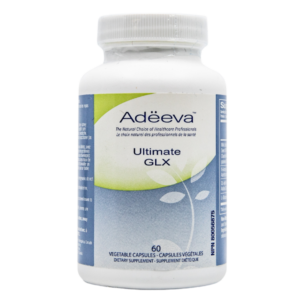
The Power of Alpha-Lipoic Acid: A Natural Solution for Health and Longevity
Source: J Biomolecules (2019)
Lifestyle Medicine Update (August 22, 2023)
Introduction: The Multifaceted Benefits of Alpha-Lipoic Acid
Alpha-lipoic acid (ALA) emerges as a versatile compound vital for overall health and well-being. Present in plants, animals, and the human body, ALA serves diverse functions, ranging from antioxidant protection to energy production and modulation of blood sugar and lipid metabolism. Recent research sheds light on its potential in combating neurodegenerative diseases, countering heavy metal toxicity, and facilitating tissue rejuvenation through stem cell modulation.
Guarding Against Neurodegeneration: ALA’s Neuroprotective Role
Experimental evidence suggests that ALA may offer protection against neurodegenerative conditions like Alzheimer’s disease. Its neuroprotective properties are attributed to its antioxidant activity and its ability to support glucose uptake and metabolism in damaged nerve cells, potentially aiding in nerve repair.
Combatting Cancer: ALA’s Anti-Cancer Potential
Exciting findings from experimental research highlight ALA’s anti-cancer properties, hinting at its potential role in cancer prevention and treatment. While further studies are warranted, these initial results underscore the promising therapeutic avenues ALA may offer in the fight against cancer.
Addressing Diabetic Neuropathy: Clinical Insights
A pivotal human clinical trial featured in a 2019 review showcased ALA’s efficacy in diabetic neuropathy management. Patients receiving 600 mg of ALA daily experienced significant alleviation of neuropathic symptoms alongside a notable reduction in blood triglyceride levels, enhancing their quality of life. Additionally, experimental studies suggest ALA’s role in repairing nerve damage associated with diabetic neuropathy, further emphasizing its therapeutic potential in this condition.
A Promising Anti-Aging Intervention
As individuals age, declining ALA levels reduce antioxidant defenses, leaving them susceptible to various age-related ailments. Supplementing with ALA, particularly after the age of 45-50, may serve as a potent anti-aging intervention. Combined with N-acetyl cysteine, L-glutamine, and silymarin, ALA supplementation offers a comprehensive approach to bolstering antioxidant defenses and combating age-related decline.
Conclusion: Embracing ALA for Health and Vitality
Incorporating an alpha-lipoic acid-containing supplement into one’s regimen presents a compelling strategy for promoting health and longevity. Whether as a safeguard against neurodegeneration, a potential ally in cancer prevention, or a supportive adjunct in diabetic neuropathy management, ALA offers multifaceted benefits backed by scientific research. Embrace the power of ALA to nurture your body’s innate resilience and embark on a journey towards lasting vitality.
References:
- Salehi B et al. Insights on the use of alpha-lipoic acid for therapeutic purposes. J Biomolecules. 2019; 9(8): 356 [Read here](https://www.ncbi.nlm.nih.gov/pmc/articles/PMC7403706/)
- Medscape: Diabetic Neuropathy
[Read here](https://emedicine.medscape.com/article/1170337-overview#:~:text=A%20large%20American%20study%20estimated,cases%20are%20distal%20symmetric%20polyneuropathy.)
Eat Smart, Live Well, Look Great,
Dr. Meschino
Recommended Supplements

Dr. James Meschino
ABOUT THE AUTHOR
Dr. James Meschino, DC, MS, ROHP, is an educator, author, and researcher having lectured to thousands of healthcare professionals across North America. He holds a Master’s Degree in Science with specialties in human nutrition and biology and is recognized as an expert in the field of nutrition, anti-aging, fitness, and wellness as well as the author of numerous books.


